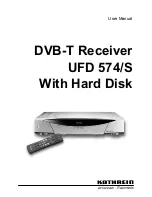
998000445
3-26-21 (REV:03)
WARNING!
To reduce the risk of injury, user must read and understand the operator’s
manual for their chemical sprayer and this instruction sheet. Always wear
eye protection with side shields marked to comply with ANSI Z87.1, as well
as any other safety equipment required due to the solution being sprayed.
Ensure compatibility and fit before using this accessory. Do not use this
accessory if a part is damaged or missing. If you are not comfortable per-
forming any of the functions described in these instructions, take your unit
to an authorized service center.
WARNING:
Do not use this product if it is not completely assembled or if any parts
appear to be missing or damaged. Use of a product that is not properly
and completely assembled or has dam aged or missing parts could result
in serious personal injury.
IMPORTANT SAFETY INSTRUCTIONS
Follow all guidelines and warnings in the PSP02 product manual.
Remove backpack before filling the tank with chemicals.
Ensure sprayer connections are properly secured and working properly
before using or transporting.
The backpack straps are subject to wear and deterioration and should be
checked each time it is used.
Do not overreach. Keep proper footing and balance at all times. Do not use
on a ladder or unstable support. Stable footing on a solid surface enables
better control of the product in unexpected situations.
Know the contents of the chemical being sprayed. Read all Safety Data
Sheets (SDS) and container labels provided with the chemical. Follow the
chemical manufacturer’s safety instructions. It is a violation of federal law to
use an EPA-approved disinfectant in a manner inconsistent with its labeling.
CONNECTING THE ADAPTOR
See Figures 1 - 3.
Unlock and remove the chemical sprayer adaptor from the adaptor storage
area on the 2 gallon tank.
Before use, attach the adaptor to the PSP02 sprayer, then attach the hose
quick connect.
Attach the threaded end of the supplied chemical hose to the 2 gallon tank.
Tighten securely.
Remove the battery pack from the PSP02 electrostatic sprayer.
Unlock and remove the 1 liter tank from the bottom of the PSP02 electrostatic
sprayer.
Place the adaptor on the bottom of the PSP02 electrostatic sprayer. Lock
the latches to secure the tank in place.
Attach the female coupler on the other end of the hose to the adaptor.
NOTE:
Always make sure that the hose is attached and securely tightened
to both the tank and the adaptor to prevent leakage.
NOTE:
To prevent leakage, always disconnect the hose quick connect from
the adaptor and sprayer when not in use or when transporting.
FILLING THE 2 GALLON TANK
See Figure 4.
Know the contents of the chemical being sprayed. Read all Safety Data
Sheets (SDS) and container labels provided with the chemical.
Follow the
chemical manufacturer’s safety instructions. It is a violation of federal law to
use an EPA-approved chemical in a manner inconsistent with its labeling.
Place the 2 gallon tank upright on a flat level surface.
TECHTRONIC INDUSTRIES POWER EQUIPMENT
P.O. Box 1288
Anderson, SC 29622 USA
1-800-525-2579
www.ryobitools.com
CHEMICAL SPRAYER TANK ADAPTOR
PSP02AD
Use with RYOBI PSP02 Handheld Electrostatic Sprayer ONLY
Fig. 4
Fig. 2
Remove the cap from the top of the 2 gallon tank.
Carefully pour up to 2 gallons of liquid into the tank. Do not overfill.
Replace the cap.
NOTE:
Wipe the outside of the tank with a dry cloth and clean up any spills
before putting the backpack tank on your back.
NOTE:
If mixing a concentrated solution, follow the instructions on the
chemical container for proper ratio usage per the manufacturer’s direction.
USING THE CHEMICAL SPRAYER TANK ADAPTOR
See Figure 5.
Slip your arms through the backpack straps and position the tank against
your back.
Adjust the straps until the tank rests comfortably against the small of your
back.
Reinstall the battery pack into the PSP02 electrostatic sprayer.
Move the lever on the shut-off valve in the hose to the OPEN position.
You are now ready to spray according to the instructions in your chemical
sprayer operator’s manual.
NOTE:
Make sure the lever on the shut-off valve is in the CLOSED position
when the sprayer is not in use to avoid any unwanted dripping from the
nozzle.
CLEANING THE UNIT
See Figure 6.
WARNING:
Always store and dispose of chemicals properly. Disposal of contaminated
rinse water should be performed according to local ordinances and bylaws.
DRAINING THE TANK
If there is any liquid left in the tank after spraying, the tank should be drained
before cleaning.
Remove the battery pack.
Disconnect the hose from adaptor and unscrew the cap from the tank.
Drain the contents of the tank and the hose through the fill opening.
NOTE:
Drain the contents back into the original container. Do not store
chemicals in the tank.
Follow all manufacturer and SDS guidelines for the chemical being used.
CLEANING THE TANK AND SPRAY LINES
Do not leave residue or spray material in the tank after using the sprayer.
Clean after each use.
Fill the tank about one-third full with clean water. A small amount of mild
household detergent may be added.
NOTE:
Never use flammable chemicals or abrasive cleaning agents to clean
the tank.
Wipe the outside of the tank with a clean, dry cloth.
Replace the cap.
Reinstall the battery pack. Spray until the tank has been emptied. Make sure
to direct the spray toward an area that will not be damaged by the spray
solution.
Refill and repeat the procedure with clean water. It may be necessary to
rinse the tank more than once, then drain again as directed above.
Allow all pieces to completely dry before reinstalling parts and storing the
unit.
NOTE:
Store the sprayer in an upright position.
DO NOT
store the sprayer
on its side.
Fig. 1
Fig. 3
Fig. 5
Fig. 6
CLOSED
OPEN




















